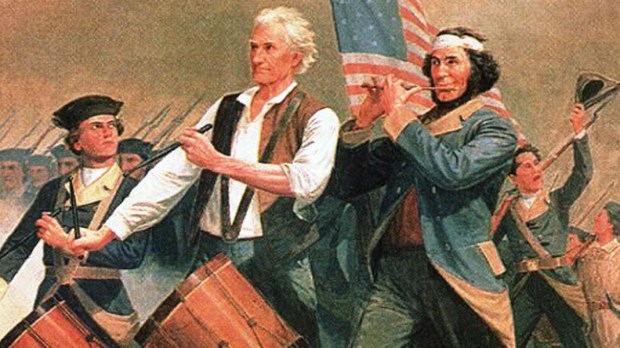July Fourth is a defining date in America — for more reasons than you think. Here are five July Fourth events that demanded our nation decide who it is.
After July 4, 1776, we have had to decide what freedom would mean.
That was, of course, the day a group of British citizens signed the Declaration of Independence pledging “our lives, our fortunes and our sacred honor” to an act of insurrection. If they won, they would be the first citizens of a new nation. If they lost, they would hang as traitors, leaving their descendants destitute and shamed.
Why did they sign? To declare that everyone was “endowed by their Creator with certain unalienable Rights, that among these are Life, Liberty and the pursuit of Happiness.”
But those founding principles have been disputed ever since. Does the right to life include the unborn? Does the right to liberty include dissent from marriage laws? And the pursuit of happiness — is that the classical definition of happiness, the virtuous life? Or does it mean “follow your bliss”?
After July 4, 1803 (and July 4, 1804) America had to decide if we are an empire.
On July 4, 1803, President Thomas Jefferson completed the Louisiana Purchase, and bought a large swath of the American continent from Napoleon, who had recently won it from Spain. By July 4, 1804, Lewis and Clark were already out in the middle of it, shooting off a celebratory cannon in what would be Atchison, Kansas.
Clearly, we thought a bigger America was a better America. But we also first faced the question we still have to ask today: When is it okay to force our culture on other cultures, at home and abroad?
After July 4, 1817, we had to decide to what extent money makes us great.
That’s the day construction began on “Clinton’s Folly,” as critics of New York’s governor called the Erie Canal. It would run 363 miles from Albany, on the Hudson River, to Buffalo, at Lake Erie. It started a pre-railroad train of goods from the continent to coast, and it made New York City one of the wealthiest cities in the world.
But by putting America’s ingenuity and can-do spirit at the service of wealth it raised a question we have not yet answered: How do you keep money from becoming the highest value? Because when money is the highest value, consumerism wrecks families, companies move overseas, and pornography proliferates.
After July 4, 1855, we had to decide if the individual or the family was primary.
That was the day Walt Whitman published Leaves of Grass, the strange book of verse that was critically panned before becoming an American classic. “One’s-self I sing, a simple separate person,” it begins. “Of Life immense in passion, pulse, and power … The Modern Man I sing.”
Whitman was giving artistic and cultural expression to an idea that was already embedded in philosophy and would soon dominate politics, redefine marriage, and make abortion a right. Self-expression, freedom of conscience, and appreciation of each person’s gifts are all a great thing. Radical individualism, which places the autonomous self at the pinnacle of importance, is not.
On July 4, 1863, we decided that Democracy itself makes us great.
That was the day General Robert E. Lee retreated in a heavy rain following the heavy losses of the three-day-long Battle of Gettysburg on the same day confederate troops surrendered to Ulysses S. Grant in Vicksburg, Miss.
The battle was a turning point in Abraham Lincoln’s project of “proving that popular government is not an absurdity” — and he said so on the battlefield four months later: “Government of the people, by the people, for the people, shall not perish from the earth.”
Democracy has been a magic word in America ever since, resulting in the liberation of people worldwide. But we have also learned the hard way that the magic of democracy only works when it is “of, by, and for” people of strong moral commitment. Without that, Democracy becomes a “dictatorship of relativism.”
Which brings us to July 4, 2012.
That was the date five years ago that the U.S. bishops began trying with all their might to use the “Fortnight for Freedom” to convince Catholics to engage in public life.
Because of our rich heritage of social thought, Catholics uniquely have the right answers to each of these Fourth of July questions. The question is whether or not we will fight for America’s soul.

